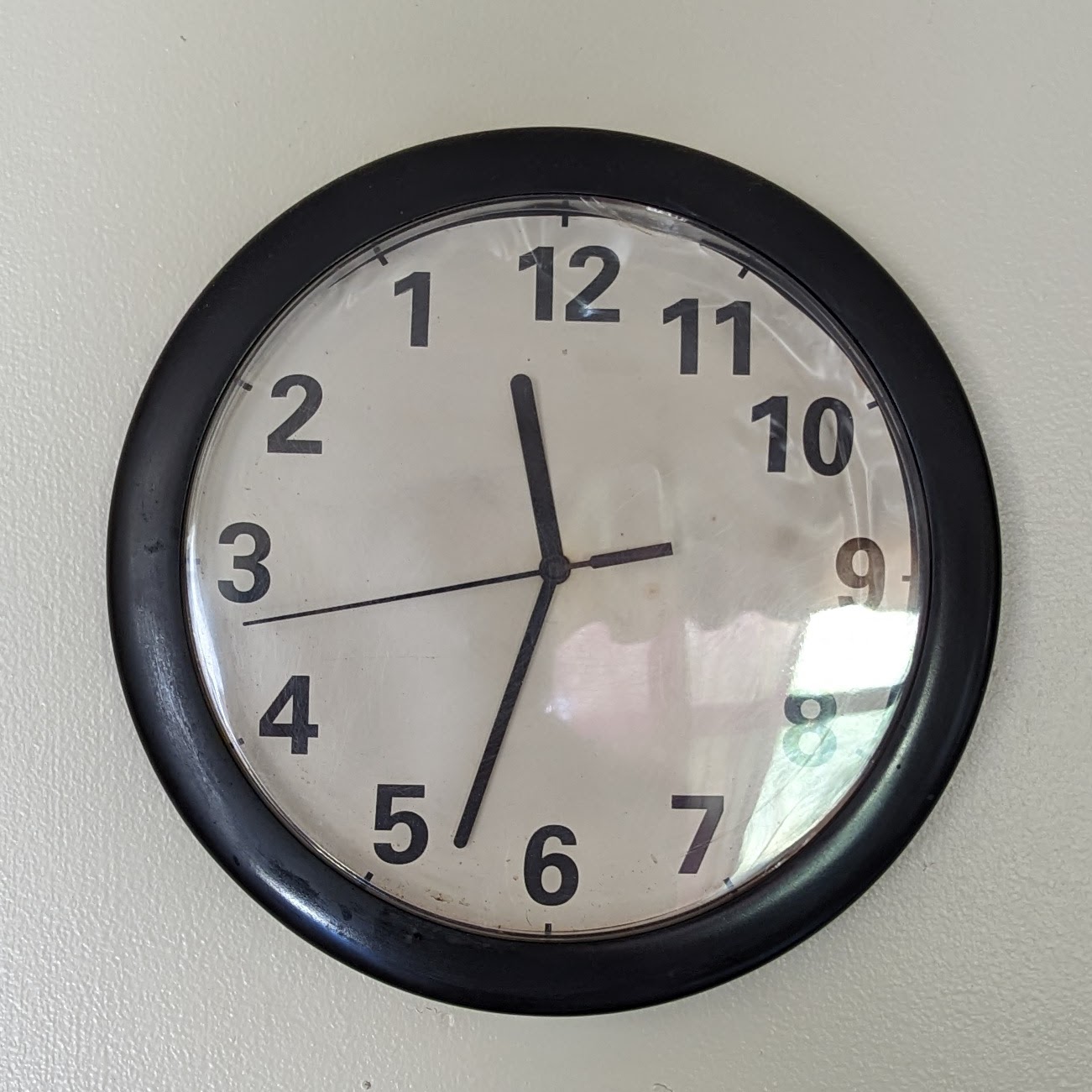Was there an alternative adjective to “clockwise” other than “the rotation you take around left hand”?
Also, how did all watch companies around the world agree on what the direction of “clockwise” is?
Was there an alternative adjective to “clockwise” other than “the rotation you take around left hand”?
Also, how did all watch companies around the world agree on what the direction of “clockwise” is?
A guy I know owns this clock, which basically proves that everything in life is pointless and arbitrary:
I find this deeply unsettling, please delete
I might be evil because now I want a clock like that only with the 1 starting where the 4 is.
I don’t think you’re evil, but there is definitely something wrong with you. lol
It wouldn’t be that hard. Once you get a clock like this with the reverse movement, you can just open the face glass, remove the hands, and print a new graphic for the background.
deleted by creator
Weird, this feels easier to read. Less grating somehow.
You left-handed?
Hey, don’t put us all in the same bag ! I am left-handed and i still got weirded out by it. He’s just a weird guy that may happen to be left-handed.
I’m also left-handed and weirded-out by it. I was just wondering, lol.
Also, right-handed people suck. Southpaws unite!
One day we will control the world and force right handed people to use tools made for left handed people and we will finally give them a taste of our eternal struggle, muahahaha !!
Hell yeah brother (or sister)!
Am a brother, brother.
Double hell yeah brother brother!
How you like these scissors, huh? HUH?
Left Bros for life!
Nope. Right handed. But AuDHD like there’s no tomorrow…
I guess you’re ok. I’m more of an ass man, myself, but I’ll allow it.
Thank you arse lover
[email protected]
[email protected]
[email protected]
I have one of these, it was a gag gift from a friend. I’ve had it up so long now though I have to double check which clock in looking at before I tell the time because I’ve got so used to it
That’s pretty cool. Also, your username contains an anagram of the name of the man who owns the clock from my comment. That’s also pretty cool.
Oh, you mean like the order of the Alphabet?
That’s actually the only non-arbitrary thing in existence. If the alphabet wasn’t in alphabetical order, we’d all be dead right now.
This is correct. Alphabetical Order is one of the fundamental laws of nature. A universal constant.
Alphabetic order is completely facist nonsense. Obviously the n should come before the m. You wouldnt put w before u, would you?
#wakeupsheeple
I like how I was joking but we still ratio’d that guy.
Also why the seemingly arbitrary graduations, 24 hours, 60 minutes, 60 seconds. If it was say 10 hours in a day, 100 minutes in an hour, 100 seconds in a minute, seconds would be close to the same amount of time. Same with latitude and longitude, why 360 degrees in a circle with 60 minutes in a degree and 60 seconds in a minute.
deleted by creator
Morning, midday, evening and night are arbitrary. Why not just morning and night? Why not morning, mid-midday, midday, evening, mid-evening, and night?
The number of seasons is likewise arbitrary. Some Native American tribes had more than 4 seasons.
These numbers aren’t arbitrary, they are from different base numbering systems.
60 can easily divide by 2, 3, 4, 5, 6, and 10.
12 can easily divide by 2, 3, 4, and 6 (notice how much overlap there is).
10 only divides easily by 2 and 5. Common fractions like 1/4 or 1/3 now require decimals.
Basically, base 12 and base 60 make it significantly easier to think and work in common fractions.
It is also historically significant, as base 12 used to be more common than modern base 10. Our timekeeping system dates back to the ancient Babylonians, who worked in base 12. This influence is still felt in other places, such as the fact that eleven and twelve have unique names in many languages rather than following the same pattern as everything that comes after them.
The short explanation is that those numbers are more easily divided by a larger set of denominators. 24 is divisible by 2, 3, 4, 6, 8, and 12. 100 is divisble by 2, 5, 10, 25, and 50. 60 is divisible by 2, 3, 4, 5, 6, 8, 10, 12, 15, 20, and 30.
Metric is great for scaling up and down ad infinitum, but it sucks for fractions. Fractions are easier for daily use without precision measuring equipment.
The units of time we use come from a bronze age civilisation that used base twelve instead of base ten. They’d count on their hands using the finger joints of one for single digits, and then the joints of the other for multiples.
That’s called Decimal time and revolutionary France already tried it.
Other commenters hit on the reasoning, just adding that they’re called highly composite numbers. My favorite!
Boy, do the French have a decimal time for ya!
Of course, you could always go metric
You just flipped the image!
(/s)